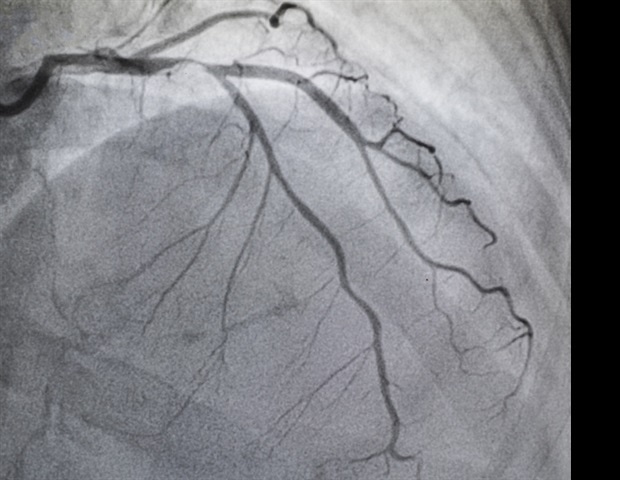In case of heart and/or lung failure, an ECMO machine can be used to maintain organ function for days or even weeks. Although extracorporeal membrane oxygenation (ECMO) technology has advanced, its use can still cause fatal complications in patients. In a recent study conducted with intensive care patients at University Hospital Vienna, MedUni Vienna researchers showed that the agent prostaglandin E1 could enhance the safety of the procedure. The study was published in the prestigious “American Journal of Respiratory and Critical Care Medicine”.
In their research, the scientific team led by Thomas Staudinger from the Department of Medicine I at MedUni Vienna and University Hospital Vienna focused on prostaglandin E1 (PGE1). This is a known agent, variously used in medicine, which affects platelets and the vascular system. The researchers hypothesized that PGE1 improves the compatibility of human blood with exogenous surfaces. However, despite medical advances, the contact of blood with foreign surfaces in ECMO still poses a risk of thromboembolism. As shown in the study, those patients who received PGE1 were less likely to exhibit clotting or visible signs of bleeding. It appears promising that the agent could increase safety when ECMO is used.
Prostaglandin E1 or saline solution
The study was randomized, placebo-controlled, and double-blind in a design considered to be of particularly high scientific quality. The participants were patients with respiratory failure in two intensive care units at MedUni Vienna’s University Hospital. Participants were randomly assigned (randomized) to receive an intravenous infusion of PGE1 or saline (placebo-controlled). In addition, anticoagulation with unfractionated heparin was administered as routine therapy. Neither the patients nor the clinical team knew which substance was used, PGE1 or placebo (double-blind). In total, 24 patients received PGE1 in the study, and 24 patients received a placebo.
Immune response with dangerous consequences
ECMO is used for extracorporeal oxygenation of the blood in patients with heart and/or lung failure. The process involves withdrawing blood from a large vein using a system of tubes, artificially enriching it with oxygen via a membrane outside the body (extracorporeal), and then pumping it back into the body through another large blood vessel near the heart. The technology is now well advanced, but the problem of human blood being exposed to foreign surfaces remains a critical issue. As a result of a physiological immune response, this can lead to activation of the blood coagulation system and ultimately to the formation of a blood clot that would impede the ECMO machine and/or the vessels in the patient’s own body.
To prevent this, patients require anticoagulation. The dosage of these must be adjusted so that, on the one hand, no clots form and, on the other hand, no bleeding occurs. Finding this balance is a major challenge in the therapeutic use of ECMO.
Treatment with prostaglandin E1 could remedy this problem. However, larger-scale studies are still required to confirm its efficacy.”
Thomas Staudinger, Department of Medicine I at MedUni Vienna and University Hospital Vienna
Source:
Medical University of Vienna
Journal reference:
Buchtele, N., et al. (2022) Add-On Prostaglandin E1 in Venovenous Extracorporeal Membrane Oxygenation: A Randomized, Double-Blind, Placebo-controlled Pilot Trial. American Journal of Respiratory and Critical Care Medicine. doi.org/10.1164/rccm.202110-2359OC.













